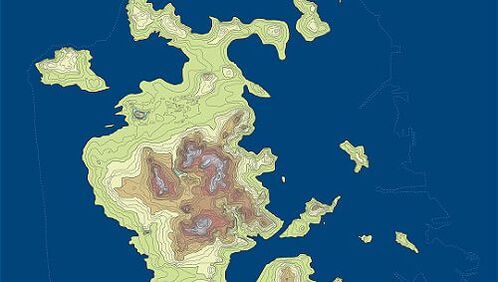Sean Burnett Dugdale-Martin
I treated this piece like I would an audiobook: I had it playing as I drove to and from work. I listened to it in chunks over multiple days and I enjoyed it on the whole even though podcasting and audiobooking are not things I do at all. Initially, I thought it would be a challenging experience but I was happily mistaken!
It plays like a slice-of-life following multiple characters in a larger community over the course of one day. The Forever Wave is true to its word when it says “comprehensive exploration” and it embodies one of my favorite themes of science-fiction or any piece set in the future: hypothesizing human perseverance. Humans will survive, but in what way? What parts of humanity will be empowered and prioritized in a world reset? The world of The Forever Wave contains a healthy dose of LGBTQIA+ knowledge and joy throughout it, such as a pair of twins not being old enough to choose their gender yet. The world also contains curious evolutions of old myths into new contexts. There is a character who stalks the halls of a dilapidated building who is referred to as a siren, not as human, and she is brought food by the other hill-top dwellers on their rounds just as they would for each other member of their extended community.
There are many characters that The Forever Wave visits during its patient wandering through the lives of whoever is left. So many characters that I do not keep track of who is who. The voices are helpful, however, sometimes the voice acting is a little stilted and there are distinct pauses between characters speaking which I imagine is a technical trope of radio plays but does jarr me at times since I’m used to a faster, more naturalistic pace of conversation from characters. I do not worry about keeping track of who is who, however, since each part is painting a picture of a larger whole. The world is built slowly with deeply human characters in an inhospitable world, often being proven hospitable because of the human characters in it.
The radio play involves a sense of spiritual mysticism, an example of which is a pair of ghosts interacting with the living. I enjoy how The Forever Wave plays with what is mystical and it leaves me thinking about how much mysticism and reality would merge in such a world-shattering event. After all, in the event of a wave totalling the city and shutting off all communication with the outside world, taking out millions, what would reality be anymore? What would it even mean to be human anymore?
At its core, The Forever Wave is about climate change and our inability to properly do anything against it. It never touches on possible solves or solutions, it simply presents a what-if scenario with a core of human optimism. I enjoy its hopefulness especially because of how implicit it is in each of the characters' perseverance. They keep on living and I reckon humans probably would!
The music (Mark Growden and Banda Sin Nombre) and sound design (Cliff Caruthers) were particular highlights. Call me a no-attention-span, TikTok-ruined-my-brain loser but 90 minutes is a long time to listen to something with no visuals. The music within the play is performed in-world by the character and each song is about the context the characters inhabit. These songs are always a treat and are from a range of genres from ballads to shanties. They provide a wonderful humanness which compounds on the piece's overall theme of human perseverance, acting as examples of how humans can exist anywhere and find a way to make it beautiful, even if we are careless with the planet as a whole.
The Forever Wave is an online body of work in NZ Fringe that you can find more info about here.






